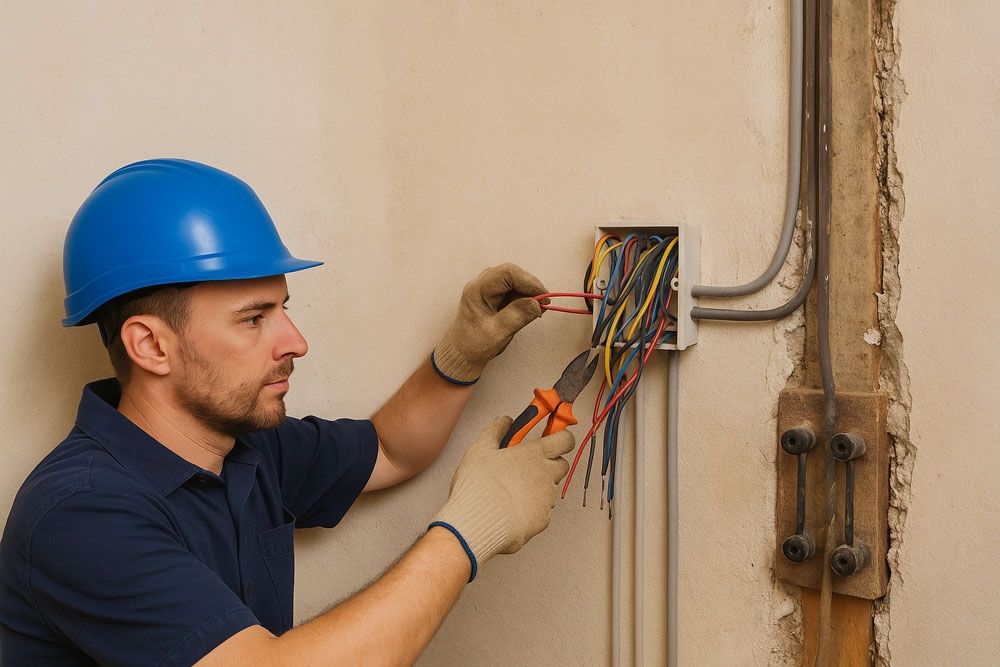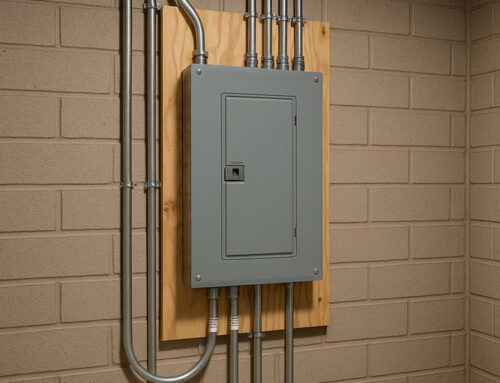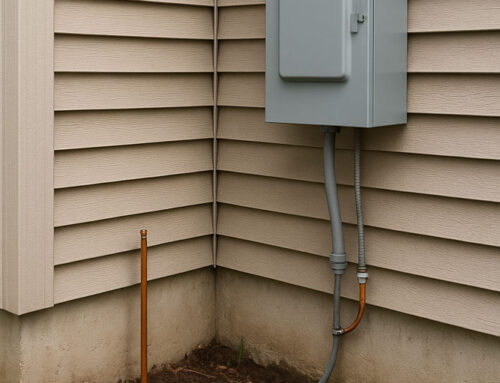Older homes offer character and charm that modern construction can’t always replicate. But behind the walls of a classic property may lurk outdated wiring that poses serious risks to both safety and functionality. Rewiring is one of the most critical upgrades an older home can undergo—and it should never be attempted without the skill and oversight of licensed professionals.
We’ve rewired many homes built before the 1980s, and we’ve seen everything from brittle insulation to aluminum wiring and unsafe modifications done over the decades. What worked in the past isn’t necessarily safe or code-compliant today. Homes built before modern safety standards often lack grounding, rely on knob-and-tube wiring, or use two-prong outlets that no longer support today’s technology.
Outdated wiring systems can’t keep up with modern energy demand. Today’s homes are filled with appliances, electronics, smart devices, and HVAC systems that require clean, consistent power. If a home’s electrical system isn’t designed to handle this load, breakers may trip, lights flicker, or outlets may overheat. Worse, deteriorated wiring dramatically increases the risk of electrical fires—a leading cause of property damage in older homes.
Rewiring begins with a full assessment of the home’s current electrical system. We examine every circuit, outlet, panel, and fixture to determine what needs to be replaced. Often, older homes have been modified over the years—additions, basements, or garages wired by previous owners or unlicensed contractors. These patchwork systems often create weak points that must be corrected for safety and efficiency.
Professional rewiring includes installing new grounded wiring throughout the home, upgrading the electrical panel to meet today’s amperage requirements, and bringing all outlets and switches up to modern code. We also plan for dedicated circuits in areas like the kitchen, bathrooms, and laundry room—spaces where appliance use is heavy and constant.
It’s also the perfect time to improve the layout. Many older homes have limited outlets, inconvenient switch locations, or outdated light fixtures. We work with homeowners to redesign placement for everyday convenience, integrate energy-efficient lighting, and even include smart home capabilities for future-ready function.
Safety is the top reason for professional rewiring, but insurance is another key factor. Many insurers won’t provide full coverage—or may charge higher premiums—for homes with outdated wiring. A completed, documented rewire from a licensed electrician provides peace of mind and can reduce homeowner risk and liability.
We also handle all permitting, inspections, and code compliance. Local regulations change frequently, and having a licensed contractor ensures everything is done to current standards. If the home is being prepared for resale, updated wiring can be a powerful selling point and avoid delays during home inspections.
One concern homeowners have is disruption. Rewiring does involve accessing walls, ceilings, and floors—but we use minimally invasive techniques and work in stages to keep the process as smooth as possible. We communicate clearly about timelines and daily progress so clients know exactly what to expect.
It’s important to note that rewiring is not a DIY project. Mistakes can lead to electrocution, structural damage, or fire. Professional contractors understand how to route wires properly, balance loads, and ensure long-term safety.
We believe that older homes deserve the same level of safety and performance as new construction. Rewiring modernizes the home from the inside out, providing reliable power, improving efficiency, and increasing overall value—without sacrificing the unique character that makes an older home special.
Contact Clark Electric at (844) 431-8050 or visit our Facebook page to schedule a professional consultation for your home rewiring project.
#OldHomeElectrical #RewiringExperts #LicensedElectricians





